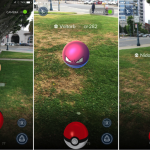
Photo Source: Shutterstock
What Should you Expect From a Video Interview?
Video interviewing software is becoming more popular among recruiters, which means job seekers will start encountering it more often. This can be a scary prospect, especially for those who have never performed a video interview before. There’s no need to be fearful, though, because there actually aren’t many differences between a video interview and in-person or phone interview.
Before we get to the differences, let’s go through exactly what a video interview is and what you will happen when you perform one.
What is a Video Interview?
A video interview is a job interview performed through the internet using a microphone and webcam. While some recruiters choose to use free video conferencing systems like Skype or Google Hangouts, many are making the shift to video interviewing designed for recruitment purposes.
Video interviews are usually performed with hardware found in most homes these days. As long as you have a computer with a microphone and webcam, a modern laptop, smartphone, or tablet you’ll be able to complete the video interview.
There are two types of video interviewing software you’re likely to come in contact with during the recruitment process: pre-recorded video interviews and live video interviews.
Pre-recorded video interviews are the least popular of the two options, but still used by many hiring teams. A pre-recorded interview is only performed by the job candidate, there is no recruiter participating to ask questions. Typically, the software shows a question then the applicant records their answer. Recruiters have found it to be a great replacement for screening phone interviews, so they usually replace that step with pre-recorded video interviewing.
On the other side of the coin is live video interviews. The video system is used to perform these types of interviews is similar to Skype or Facetime. You will speak to a recruiter directly without needing to be in the same room through the internet. Because this is a face-to-face interview, most recruiters use it as a replacement for the first in-person interview.
While the recruitment process does vary from organization to organization, if you’re performing one or both of these video interviews, it shouldn’t be in addition to a phone or the first in-person interview. This software helps recruiters modernize and simplify recruiting, so it shouldn’t be an additional step on an already lengthy process.
What’s the Difference Between a Video Interview and a Phone or In-Person One?
You might be wondering how exactly a video interview differs from other job interviews you’ve performed in the past. The truth is that there will be no difference in the content of the interview. The recruiter will still ask you the same questions they would if they were performing a phone or in-person interview instead of a video interview.
Yes, all job interviews are inherently different, but that’s just because each candidate is a different person. The questions a recruiter will ask or how they will evaluate your answer will not change based on which method they choose to interview you with.
What is different about a video interview is that it combines the best parts of the other two interviewing methods: convenience and professionalism. Phone interviews are convenient because you can pick it up from literally anywhere, but it’s not very professional to be interrupted by subway announcements or to be cut off because you’re driving through a tunnel.
The professionalism of in-person interviews comes directly from being able to meet the recruiter and speak with them face-to-face. That said, it can be a bit of an issue to get everyone in one location. Some people may need to make travel arrangements while others have to take time off work or have to reschedule due to an unexpected emergency.
When you do a video interview, you combine the professionalism of an in-person interview with the convenience of a phone interview. Candidates can complete the interview from the comfort of their own home, making it the most convenient option, and still meet the hiring team face-to-face, just without being in the same room. You can even set up the space you’ll be performing your interview to replicate an office and look even more professional.
That said, there is one extra you need to do before performing a video interview to make sure it goes smoothly that isn’t necessary for an in-person or phone interview. You need to make sure the technology you’re using to complete it is working properly.
In the early days of video interviewing, a lot of appointments were cancelled because either the candidate or the recruiter didn’t check their technology first and couldn’t get it working. There are many resources available to take you step by step on how to prepare for a video interview, but the number one thing you should do is a tech check. First thing you should do is make sure the device you’ll be using (computer, laptop, smartphone, or tablet) can run the software. Then, if you choose to use additional equipment like headphones with a built-in microphone, you need to make sure that is working properly, as well. Most video interviewing software will have a test page for you to perform all these checks, just make sure you do it at least 24 hours before the interview so you have time to find a replacement if something is not working properly.
You’re All Ready To Go
The idea of doing a video interview for the first time can be nerve-wracking. But remembering it will be no different from a phone or in-person interview and that the system is designed to make the process as easy as possible for you should be reassuring. As long as you do your normal interview preparations, with some additional steps to make sure the technology with working properly, you should be all set to complete the interview.
Author Profile:
Tamara Gravelle is a Senior Content Writer and Competitive Research Analyst at VidCruiter. She specializes in writing about video interviewing software, HR technology, and the greater human resources industry. She tweets at @VidCruiter








